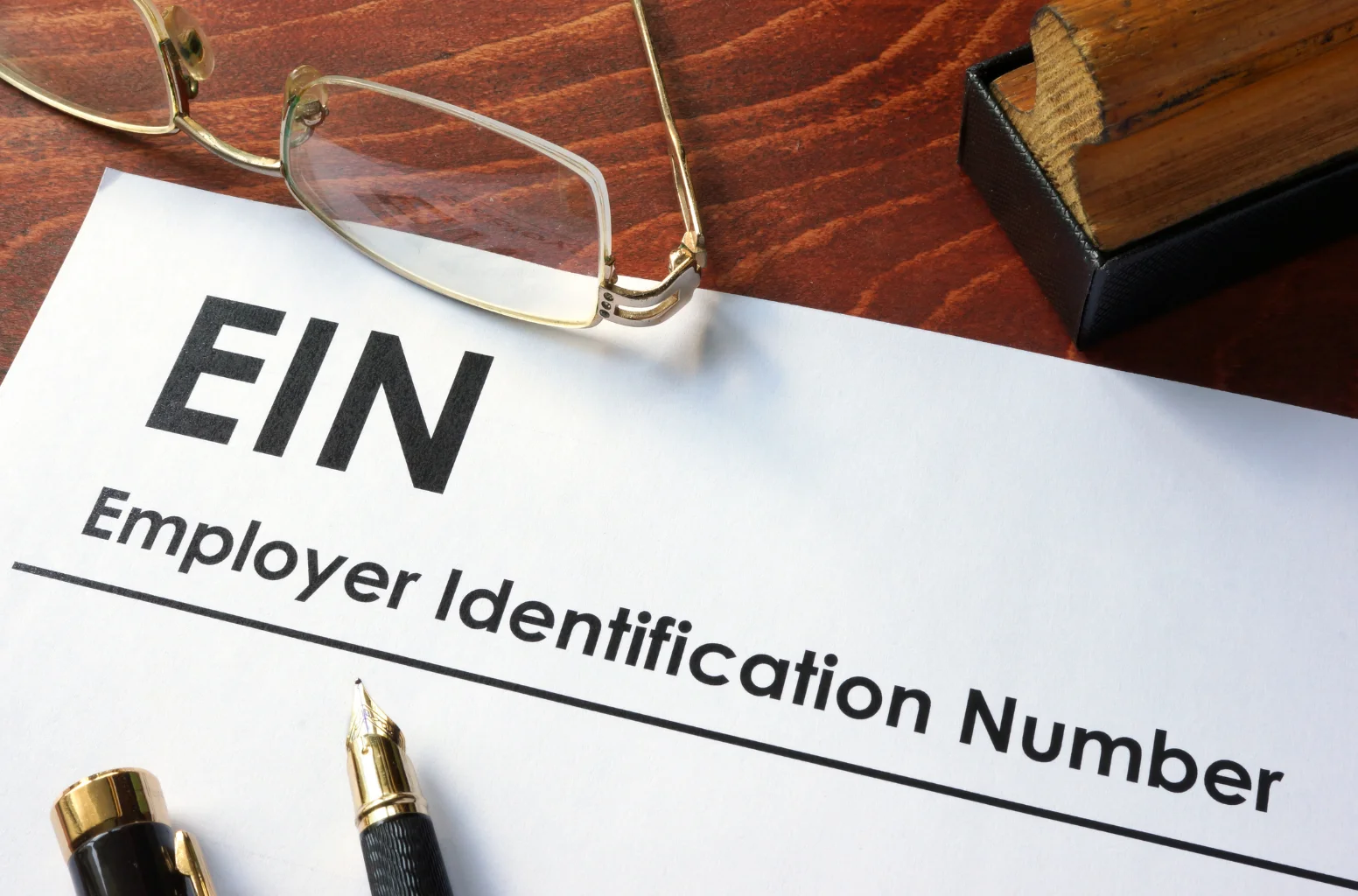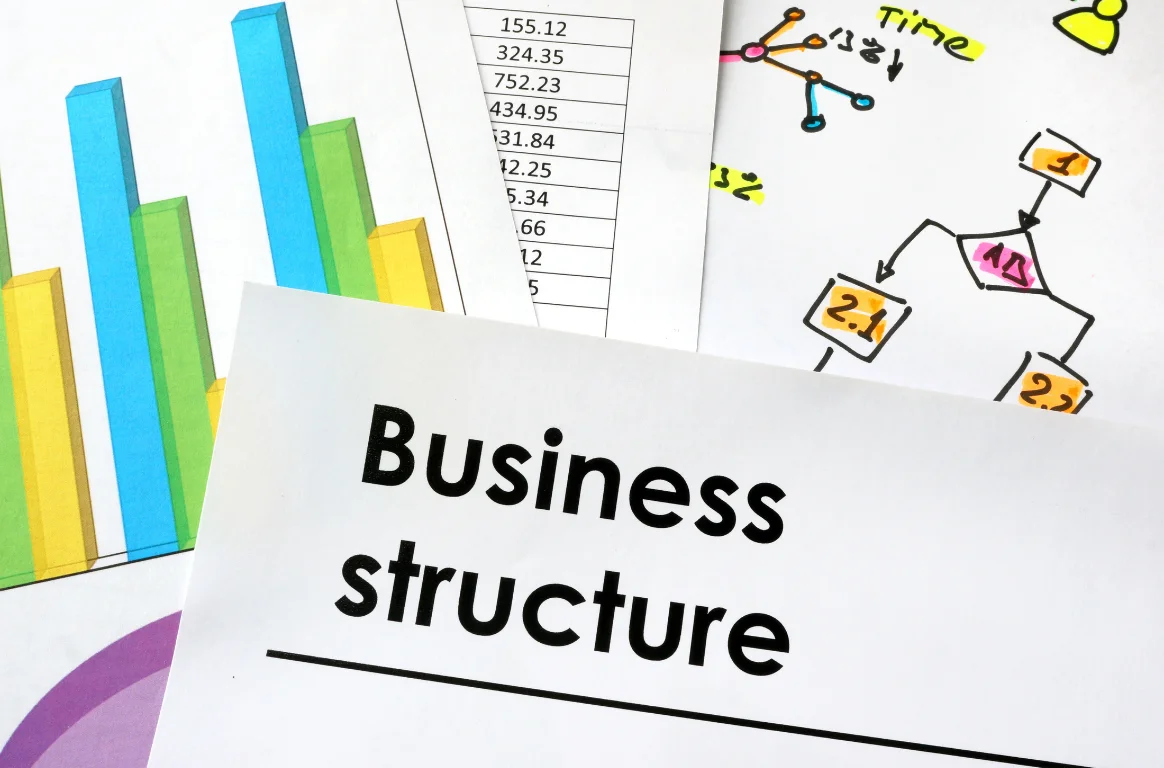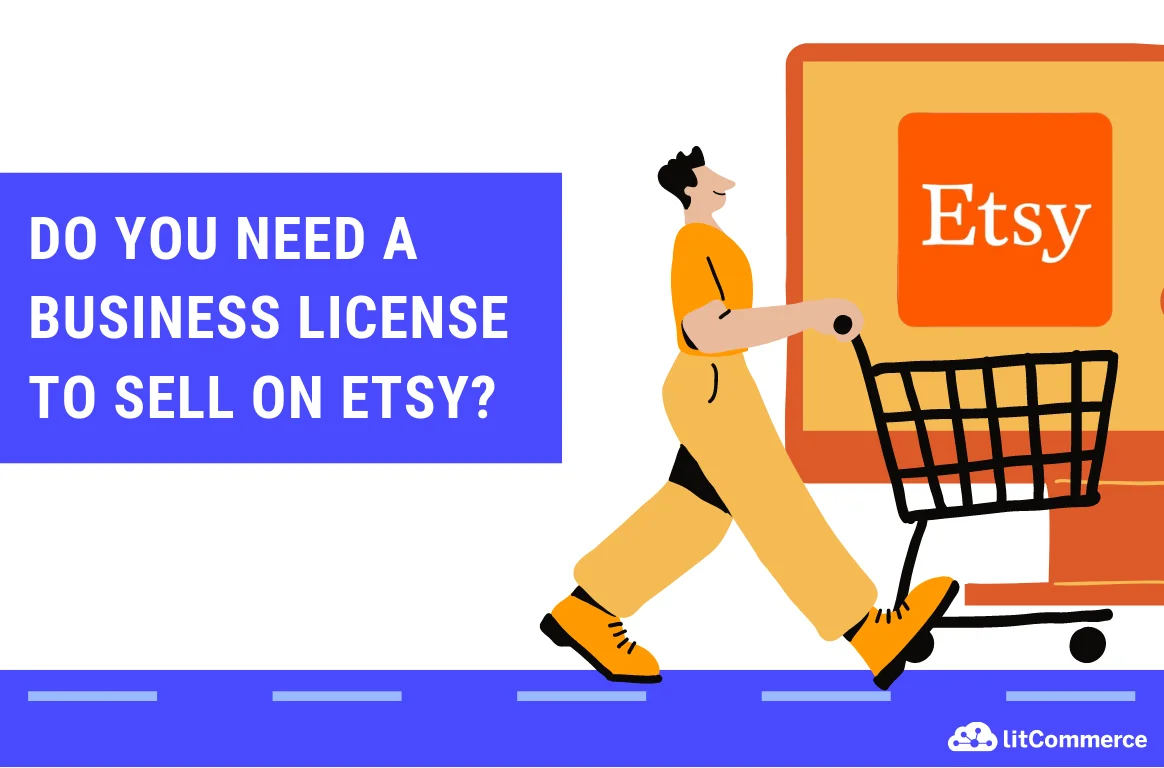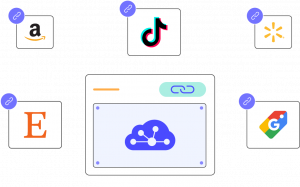Requiring little to no initial investment, Etsy has well established its reputation as one of the top online marketplaces. Setting up is easy even without previous retail experience, the platform is a great starting point for sellers to join the online selling market.
Nevertheless, do you need a business license to sell on Etsy? While Etsy does provide beginners with guidelines on what to know before starting an Etsy shop, it includes no information about business licenses.
If that question has been preying on your mind, let’s read on to find out:
- Do you need a business license to sell on Etsy?
- Requirements to sell on Etsy
- What kinds of business licenses to sell on Etsy?
- How to apply for a business license?
- Etsy legal considerations
Let’s get right into it!
Grow your multichannel business with LitCommerce
To boost your online profit, going multichannel selling is more crucial than ever. Try out LitCommerce’s solution to integrate your Etsy store with other top online marketplaces effectively and affordably now!
Do You Need a Business License to Sell on Etsy?
No, Etsy itself does not require you to have a business license to open a shop or sell on its platform. You can start listing and selling products as an individual, hobbyist, or business without uploading a business license during Etsy’s registration process.
However, whether you need a business license to sell on Etsy depends on your local, state, and federal regulations. Below, we provide you with the IRS’s (Internal Revenue Service) detailed guidelines to work out the puzzle!
1. Do you sell on Etsy as a business?
IRS lists down 9 factors to help you determine whether your Etsy store is a hobby or business. Here’s the list for your reference:
- You do it in a businesslike manner, maintain, complete, and accurate books and records.
- It is part of your personal motive.
- Making a profit is your goal, and you invest a considerable amount of time and effort to achieve that purpose.
- You make a livelihood out of the income from it.
- Your losses are due to circumstances beyond your control (or are normal in the startup phase of your type of business).
- Either you or your advisors acquire essential knowledge to carry on the activity as a successful business.
- You have successfully made a profit in similar activities in the past.
- The activity makes a profit in some years, and how much profit it makes.
- You can expect to generate future profits from the appreciation of the assets used in the activity.
In a nutshell, you need a business license to sell on Etsy if you deliberately make profits from the platform.
2. Do you sell on Etsy as a hobby?
If your Etsy store is, in the IRS’s sense, not a business, there is no need for a business license for Etsy. However, there are some disadvantages associated with having no business licenses.

You’ll be unable to claim any possible loss from the income you generate when selling on Etsy. For example, you can retrieve the 10% fee deduction from making a sale on the platform. Upon accumulation, this may result in a considerable loss to your overall profit.
It’s important to keep in mind that whether it’s a hobby or business, you are subject to paying tax for your commercial activity.
On a second note, a business license might also protect you against any arising legal dispute.
What Are Requirements to Sell on Etsy?
Before learning “Do you need a business license to sell on Etsy?”, let’s examine the prerequisites for selling on Etsy.
1. Know what you can sell
Etsy is all about creative and unique products. Here’s what you’re allowed to sell:
- Handmade items – made or designed by you (even if a production partner helps make them).
- Vintage goods – must be at least 20 years old.
- Craft supplies – tools, materials, or ingredients for making stuff.
- Digital products – think printables, templates, or digital designs.
Small tips: Etsy doesn’t allow illegal, dangerous, or copyrighted items. Be sure to review their Prohibited Items Policy to stay in the clear.

Just starting out? You might also want to check out:
2. Understand shop & listing requirements
#1. Be transparent
Let your buyers know exactly what they’re getting:
- Describe how the item was made, who made it, and where it’s coming from.
- If someone else helps with production, disclose your production partners.
- Introduce your shop team if others are involved.
- Use your own high-quality photos or videos (no stock images unless you have permission).
- If AI helped create your product, you must say so in the listing.
#2. Listing details matter
Make your listings shine:
- Accurately name, categorize, and describe your product.
- Set a fair price and include up to 10 clear photos (at least 2,000 pixels wide).
- Add one product video if you can—it helps boost engagement.
- Set up your shipping, return policy, and processing time so buyers know what to expect.
3. Creating an Etsy account & verifying identity
Opening an Etsy shop is easy. Just:
- Create an Etsy account
- Choose whether you’re registering as an individual or a business
- Add your full name, address, date of birth, and tax number (if required in your country)
- Link a bank account for payments
To verify your identity, Etsy will ask for a clear photo of your government-issued ID (like a passport or driver’s license). Ensure that your name and birthdate match the registration details. In some regions, like Germany or the Netherlands, you may also need a valid credit or debit card to open your shop.
4. Setting up your shop
You’ll need to create at least one listing to open your shop. Don’t worry—it doesn’t need to be perfect the first time, but make sure:
- You complete all required fields (title, description, price, variations, shipping).
- Set up shipping options, including international delivery and customs info if needed.
- Always preview your listing before publishing so everything looks polished and professional.
5. Payments & Taxes
#1. Etsy Payments
To get paid, you’ll need to enroll in Etsy Payments, which supports:
- Credit/debit cards
- PayPal
- Etsy Gift Cards
- Apple Pay, Google Pay, and more
Ensure your bank account details are entered correctly to receive payouts.
#2. Tax Info
Depending on your country, Etsy may request tax identification details. In some places (like the U.S.), Etsy even collects and remits sales tax for you—easy!
As long as you sell eligible items and follow the platform’s rules, you’ll be off to a strong start, besides your wondering of “Do you need a business license to sell on Etsy?”.
Etsy Multi-selling Made Easy with Us
Scale your Etsy business and make more profit by selling on other selling channels like Amazon, eBay or Reverb at once! List once and make sales in the long run, inventory and order management in one unified dashboard.
What Kinds of Business Licenses to Sell on Etsy?
If you create an Etsy account to sell, and wonder, “Do you need a business license to sell on Etsy?”. The answer is yes, acquiring a business license is a must. A business license allows you to focus better on growing your business without worrying about legal matters. It’s easier to scale up and sell more, and the business is safer in cases of filthy acts from your competitors.
Depending on where you live, what you sell, and who you sell to, you’ll need to sign up for different kinds of business licenses. Here is the list of commonly required business licenses for Etsy merchants.
- Business operation license. You need a business operation license to legally run your business within the local government’s geographical jurisdiction. The application requirements differ from one state to another, so it’d be better to contact your Small Business Administration office for details. In general, the application process for eCommerce merchants is minimal and only costs around $50 to $100 (varies by city and state).
- Employer identification number (EIN). This is for business tax reports to the IRS when your business has registered as a partnership, incorporation, or LLC (Limited Liability Company). If you start a small business on Etsy and register as the sole proprietor, an EIN is not necessary. In this case, your tax reports count on your personal tax returns.

- Home occupation permits. You may be required to obtain a home occupation permit if you are running the business out of your home. This license matters in cases where you make your products out of your home (a common thing for many Etsy sellers). It’s best to seek references and local regulations from your city’s local SBA or city hall.
To avoid a knock on the door from the IRS, it is essential to verify that you have met the local permit requirements. As local laws on this matter vary by city and state, you should contact the local SBA for advice and guidance. Most places have an office where you can receive help with the paperwork and registration procedures.
How to Apply For a Business License to Sell?
Overall, you need to complete an application and pay a license fee. Below, we outline the details of each step to obtain a business license, addressing the question, “Do you need a business license to sell on Etsy?”
1. Start with a business name
You need to come up with a name that well represents your business and sets you apart from your competitors. Check out our article on 100+ shop name ideas for Etsy if you haven’t found one.
A brand name can come from parts of your name or refer to the product that you are selling on Etsy. Nevertheless, it should be concise, easy to read and comply with Etsy shop name rules. Once you have determined what name to give your business, you need to back it up with legal grounds.
- Business name and trademark check. Double-check beforehand to ensure that no one else has registered your brand name. You can search the Secretary of State and USPTO’s trademark database prior to your business name registration.
- Business name registration. If the business name is available, you need to secure its status. Depending on your business structure, you’ll be registering with either your local government or the Secretary of State.
2. Decide on the business structure
To complete the application, you need to indicate your business status. It can be a sole proprietorship, partnership, limited liability company (LLC), or other business entity.
- Sole proprietorship. As the sole business owner, you are responsible for recording Etsy’s income and losses on your personal tax returns. If your Etsy business runs small, this is an ideal option.
- Corporation or Limited Liability Company (LLC). You separate your business assets from your personal assets. It means lawsuits, debts, and tax matters of your company do not affect your personal assets. This business structure offers a greater advantage for someone seeking to scale and attract investments in the future.

3. Double-check with your local government
Once done registration, you need to double-check with your local government for any federal licenses and permits your business might need. You should also contact the Small Business Administration (SBA) to determine any other regulations you need to follow to operate your business legally.
Legal Considerations for Etsy Sellers
1. Sales and use tax
This is also known as the seller’s permit or a “sales tax ID”. The license is a state permit allowing you to sell your goods to people in that state. Nevertheless, you only need to acquire this license in certain states when you make $100,000 a year or have at least 200 transactions.
In many cases, Etsy may handle the sales tax obligations for you and count the amount in the platform’s deduction fee. You can refer to the Etsy seller handbook for additional information.
2. Physical vs digital product sales
The second thing on the checklist is the tax requirements for physical and digital products. This is yet another thing that varies by city and state. In certain states, selling digital products is tax-free. Meanwhile, in other states, you can still be taxed for selling digital products on Etsy.
Before establishing an Etsy business account, ensure you understand how you will be taxed to make a profit, besides just a small worry about “Do you need a business license to sell on Etsy?”.
3. Fictitious business names
As mentioned above, do consider trademarking your business name. As a sole proprietor, you register it by filing a fictitious name or DBA (doing business as) with your local state government. If you represent a business entity, you must register the name when filing the formation paperwork with the Secretary of State.
4. Selling food on Etsy
You can sell food on Etsy, but several states have specific requirements and regulations regarding the production, packaging, shipping, and sale of food. You should contact local law advisors to ensure that you meet all the requirements of “Do you need a business license to sell on Etsy?” before becoming an Etsy seller.
Do You Need a Business License to Sell on Etsy? – FAQs
- Can you sell on Etsy without a business license?
You can sell on Etsy without a business license. However, a business license is required in certain cases as put forward by the IRS. You also have to comply with your state’s laws and regulations to operate a business which sometimes involves the need for a business license.
- Does an Etsy store count as a business?
Your Etsy store counts as a hobby when you run it without expecting a profit. If you are investing your time and effort into operation and growing it, your Etsy shop then counts as a business.
- Do you have to have a tax ID to sell on Etsy?
A tax ID is not a requirement to sell on Etsy when you register your business as a sole proprietorship. In this case, you will report taxes on your personal tax returns. However, if your business is a corporate entity or an LLC, you’ll need an EIN (Employer identification number).
Let’s Make Etsy Business Grow
Knowing clearly “Do you need a business license to sell on Etsy?”, what it takes to establish a business leaves you with a peaceful state of mind to run your business successfully, not only on Etsy but also on other best-selling platforms. Spend time researching what’s required in your state to operate as a business, then set yourself up accordingly. Your business will be safer, easier to scale, and more profitable.
With a business license, you can easily leverage your sales strategy and scale across different marketplaces. LitCommerce is an app that helps you scale and manage multi-channel effortlessly.




